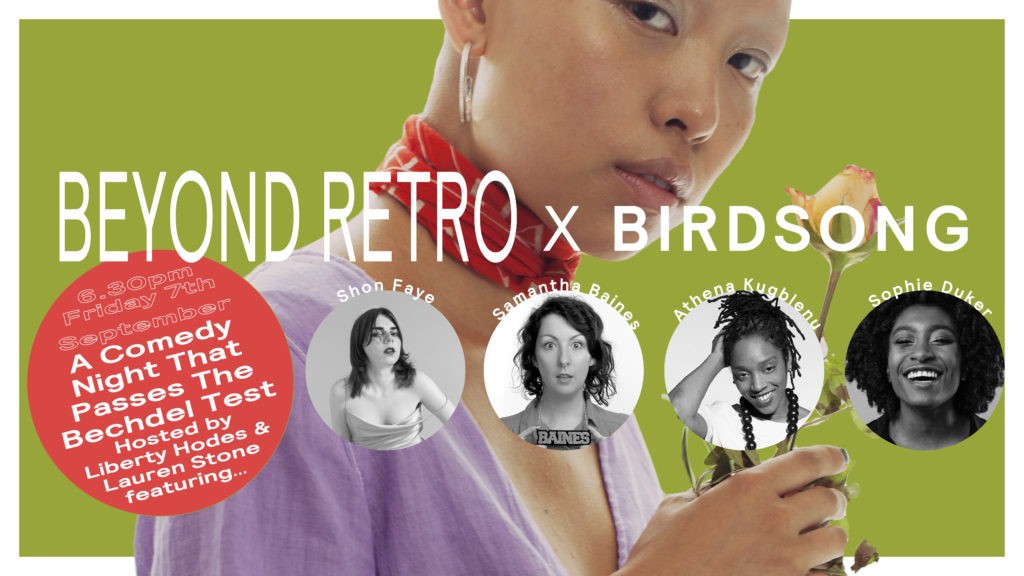Why Events Should be Part of your Marketing Strategy

Events have quickly become a crucial element of every savvy company’s marketing strategy. According to a recent study commissioned by The Content Marketing Institute, 80% of marketers situate live events as crucial to their company’s success, and 56% use in-person events as their top strategy, overtaking email marketing and digital advertising. This trend shows no sign of stopping, as the prevalence of event marketing is rapidly increasing. From internet behemoths Google and Hubspot, right down to your local independent shops and cafes – everyone’s getting on board.
And it’s no surprise when you consider the potential positive impact of a closely considered event marketing strategy. Successful events have the power to generate product and brand recognition, strengthen brand loyalty and provide a great opportunity to drive revenue over the short and longer term.
Create An Experience
It’s more important than ever to build lasting connections with customers beyond the digital sphere. In a world where consumers are confronted daily with numerous brands vying for their attention, companies have to fight harder than ever to engage customers and earn the right to establish brand loyalty. Commissioning memorable, experiential event is a powerful tool to set your brand apart and establish a longer-term relationship between company and client. This could be centred around a product launch, company anniversary or re-branding exercise. The key here is to prioritise interactive and engaging exhibits, speakers and seminars over pushing sales or blatant lead generation.
Take Google for example who’ve recently shaken up the dated, tech-y world of product launches with their five-week bonanza of workshops, talks, live podcasts, food and music. Celebrating the launch of their newest smartphone ‘Pixel 3’, their ‘Curiosity Rooms’ programme of events invites the general public to ‘unlock their curiosity and open their imagination’ through a combination of ticketed events and free, interactive spaces. The central theme underpinning the vast array of events and installations is the Pixel 3’s tagline, ‘Make every day more extraordinary’. By shifting the focus of the launch away from hardline promotion, Google instead provided a platform for thought-provoking content informed by the ethos behind the new product.

Clearly, Google’s budget is mammoth, but lessons can be learned whatever the size of your business. Structuring experiential events around a key, consistent theme strengthens the brand experience and provides a stabilising backbone, allowing for you to get as creative as your budget allows!
Expand Your Reach
Hosting events is also a great way of building brand recognition by reaching out to new audiences. But how do you locate those elusive new customers? Joining creative forces with another business, cultural institution or university is a budget-friendly strategy to help you reach a whole new set of potential customers. This way, you can cost-effectively expand your reach and build a sales pipeline by pooling your resources and connecting with each other’s customer bases.
The key to building a successful partnership is to find businesses that closely align with your brand’s ethos and serve a similar target audience to your own. At first glance, Japanese clothing company Uniqlo and beloved British art institution Tate Modern may seem like unlikely partners. However, their recent season of monthly events ‘Uniqlo Tate Lates’ have proved wildly popular. Event-goers are invited to hang out amongst the world-class exhibits after-hours, discover pop-up talks, hands-on workshops and live music sets. On their website, Uniqlo explains that they teamed up with the Tate because of their shared values and ongoing commitment to innovation, accessibility, creativity and imagination.

A well-executed collaborative campaign such as this is mutually beneficial for both brands, introducing each to a whole new customer base and adding value to their own offering. Consider reaching out to your local business centre, non-profit organisation or a local university to explore the possibility of teaming up.
Try a Different Platform
Events present a unique opportunity to invigorate your sales platform without re-structuring your business model. In an ever-increasingly digital world, companies often conduct a large portion of their business online. This can make building meaningful relationships with clients harder as customers have no physical connection with the brand. Savvy online organisations are bucking the trend by nurturing an ‘offline’ conversation with their customers.
To celebrate their fourth birthday, online ethical retailer Birdsong switched ‘clicks’ for ‘bricks’ by teaming up with legendary vintage brand Beyond Retro to create a pop-up shop. Birdsong stocked the shop with their customers’ favourite must-have pieces, alongside limited-edition event-specific items and showcased the work of local makers. As with Google, the retailer also hosted thought-provoking events such as a radical feminist comedy night in keeping with the brand’s commitment to fighting for gender parity.

The goal here is to connect with and introduce people to your brand and inspire them to develop a longer-term relationship with your product or service. One idea is to produce bespoke items specifically for the event, or giveaway smaller low-cost items such as custom enamel pin badges or keyrings. Focusing on practical or wearable items will also ensure that you get your brand’s name out there, as customers wear them time and again.
This list is just a taster of all the potential event types that you can adapt to create a dynamic event marketing strategy for your business. Whatever your organisation’s size or budget, investing ample time and money in a thoughtful events strategy is essential to nurturing your customers and growing your business long-term.
play youtube,
play youtube,
xvideos,
xnxx,
xvideos,
porn,
Phim sex,
MP3 download,
Anime xxx,
porn,
sex xxx,
Flames C Maple Leafs,
javHD,

